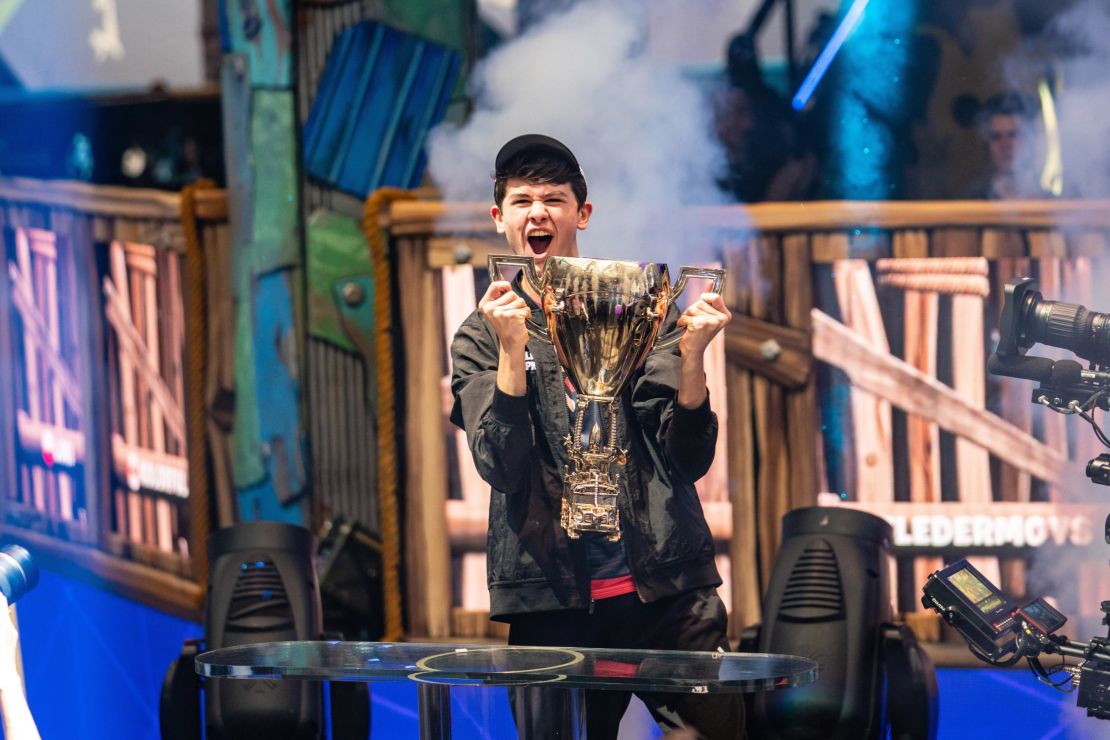Fortnite hosted a huge extravaganza last weekend and gave away $30 million in prizes at its first World Cup. In 2019, Fortnite has handed out more than $70 million in cash prizes. But tournament winners aren’t the only ones getting rich.
The popular video game has attracted the attention of many professional esports organizations. They recruit talented players. They train them, promote them on social media, coordinate their logistics, and pay them — often in six figures.
The organizations make money from brands advertising on Amazon’s Twitch streaming network and soliciting sponsorships. They also make part of their money by often taking a cut of players’ winnings.
This weekend, 16-year-old Kyle Giersdorf won $3 million as the solo Fortnite World Cup champion. But he won’t get to keep it all. He may have to pay up to 20% to his organization, the Los Angeles-based Sentinels.

It’s standard industry practice for esports organizations to take a 10% to 30% cut of a players’ winnings.
“When these players qualified, there was a mad race by the organizations to go and sign them so they could share in the winnings,” said Ryan Morrison, CEO of Evolved, a talent agency that represents esports players. “Some try to take as much as half.”
The more legitimate organizations take 20% — or less if a player already has an agent or lawyer negotiating for them, Morrison said. The cut is typically applied to the before-tax sum.
“I have to give a cut to [my organization, Counter Logic Gaming], and obviously, the government takes a huge chunk of it,” said Harrison “Psalm” Chang, 24, who finished in second at the World Cup and won $1.8 million. “It’s just business in the end.”
Shane “Epikwhale” Cotton came in third during Sunday’s competition, winning $1.2 million. He said he was happy with the terms of his contract with NRG esports, a Los Angeles-based organization. His talent agency, Evolved, helped him leverage competing offers from other organizations and look over the final contract with NRG.
How cuts differ
Eric Ma, co-president of the Sentinels, told CNN Business his organization typically takes a 20% cut from its players’ winnings, based on the contracts it signs with them. But no Fortnite event — or any video game competition — has ever paid out prizes as large as the ones it handed out during the World Cup. So the Sentinels have not decided how much of a cut it will take, Ma said.
“With this being the biggest single-player esports payout, we will discuss with the player and his parents on how to [proceed],” Ma said.
Faze Clan, an esports organization that had multiple players compete in the Fortnite World Cup this past weekend, takes an “agreed-to percentage” of its current player winnings.
“We work hard at trying to get it right,” said Faze Clan CEO Lee Trink.
Players also make money from sponsorships and viewer donations on Twitch that they sometimes don’t share with their organizations.
Cooler Esport, a European organization that manages the duo winners, Aqua and Nyrhox, who are splitting $3 million in winnings, told CNN Business that “in our case, we didn’t find it fair to take a share from Aqua and Nyhrox.”
Rui Cao, founder of Cooler Esport, said that its business plan was to build up the organization’s brand and gain sponsorships to stay profitable in the future. He said that the company has enough funds to run without a profit for a few years while it looks for sponsorships.
“Players are very grateful for it,” he said. “Also, thanks to this [business] model, we were more appealing to the top players, like Aqua.”
Fortnite: An experimental business model
Determining how to split prize winnings will remain a work in progress, just as Epic Games’ business model for the World Cup still feels experimental.
After sinking $30 million into World Cup finals cash prizes, an unknown amount renting the Arthur Ashe tennis stadium venue in New York and for other logistics, Epic likely did not recoup its costs through concession stands and selling around 20,000 tickets that ranged from $50 to $150. It didn’t even offer prominent brand sponsorships, which could have been lucrative, instead letting the Fortnite branding stand alone.
Instead, the event mainly served as a marketing campaign, attracting the community to get back into the game, and bringing in new players. Epic declined to comment about how much it projected to make from the World Cup and how much it spent.
If it succeeds at growing its audience and game sales, Fortnite could consider raising the prize pool for its next World Cup and tournaments.
“They’re making so much money that them putting up $100 million in prize money and on the venue…is such a drop in the bucket for them. That’s not a huge investment.” said Rod Breslau, the esports and gaming consultant. Epic Games earned $2.4 billion in revenue from Fortnite in 2018, according to Nielsen’s SuperData.




















